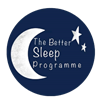As children transition into their teenage years, they are typically more likely to struggle with their sleep. This is because they experience physical and hormonal changes that can make them want to go to sleep later at night.
This is fine by itself, but added to the expectation to get up at the same time each morning for school or work, it can create sleep difficulties.
Sleep plays an important role in:
Diet & Caffeine
Eating meals at regular times throughout the day can help the body clock know when it is time to be sleepy. Going to bed hungry can actually stop the body from feeling sleepy because the brain is designed to stay awake until we've eaten.
Equally, going to bed on a very full stomach can mean the body takes a long time to digest your food and has to stay alert.
Caffeine from drinks and foods, like tea, coffee and chocolate can stay in our systems for a few hours. Caffeine blocks signals of tiredness and makes the brain and nervous system more active. Avoiding caffeine in the afternoon can help your teenager to fall and stay asleep more easily.
Read more about caffeine
Alcohol & Smoking
Drinking alcohol can stop teenagers from noticing that they are sleepy. It can also dehydrate the body and confuse the natural sleep cycles which makes it more likely that they will wake later in the night, or make it harder to wake up in the morning.
Nicotine from cigarettes and vapes act as a stimulant, which means that it can make your body and mind feel ready for action. Although the breathing action of smoking can feel quite soothing - the long breath out for example - it can have a negative effect on sleep.
Exercise
 Exercise and being active during the day can help teenagers to feel sleepier at bedtime. Exercising in the morning tends to help the body to sleep earlier at night, whilst exercising in the evening might keep them awake longer.
Exercise and being active during the day can help teenagers to feel sleepier at bedtime. Exercising in the morning tends to help the body to sleep earlier at night, whilst exercising in the evening might keep them awake longer.
It's important to exercise, so take time to find out what works best for your teenager.
Using Bed For Sleep
A teenager's bed should be a place for restful sleep, not a busy activity centre.
Encourage them not to spend long hours in bed not sleeping and make sure they are not doing their homework in bed.
Once your teenager starts to fall asleep more easily, keeping to a regular bedtime and wake-up time for a few weeks can help their body get used to the timing.
Light & Devices
Light is the strongest way of resetting your body clock when struggling to fall asleep. Having plenty of daylight or bright light in the morning, and then making sure the light is dimmer in the few hours before bedtime.
Devices can be a good source of relaxation with calming music, but they also confuse the body clock by sending light signals at night when it's time for sleep. Equally playing video games or watching TV can make them stay alert for longer which means their bodies ignore sleep cues.
Room Temperature & Environment
Your teenager's bedroom could be central to their sleep habits. Early humans used to know when it was time to go to sleep because it got cooler, but central heating confuses those signals now. Trying to keep bedrooms a little cooler and dropping the temperatures by a couple of degrees can help sleep signals.
Equally having a comfortable bedroom can make a difference to sleep. Think about their sleep environment, is there anything that could be changed? Small tweaks to some of these common issues can help create the feeling of a safe and secure environment.
Worries & Negative Thoughts
When teenagers are feeling anxious and tired their brains can get caught up thinking over difficult past experiences and worrying about future ones.
Mindfulness techniques can be used to bring them back to the present moment and simple methods can be used to train their brain to think more positively. There are lots of resources online and in app form to try.
Naps can knock out the timing of your teenager's sleep cycle so it's best to avoid them. If they absolutely need to nap, it can help to set a timer to keep them brief (under 15 minutes).
Read more about napping
You could also get them to try the deep relaxation videos below as an alternative to napping, which won't affect their night-time sleeping as much.
With additional needs come extra reasons why your teenager may find sleeping difficult. Medications and treatments may affect their sleep cycles, but there are specialist support services to help.
Charities including Cerebra, NANSA Sleep Service and The National Autistic Society provide support and sleep advice for children with learning disabilities and/or additional needs.
The Better Sleep Programme has trained practitioners across multiple services in Norfolk and Waveney to either deliver an intervention or provide support with the self-help guide. Services include:
has trained practitioners across multiple services in Norfolk and Waveney to either deliver an intervention or provide support with the self-help guide. Services include:
You can contact the Healthy Child Programme by calling Just One Number on 0300 300 0123 or texting Parentline on 07520 631590. Our opening hours are 8am-6pm Monday-Friday (excluding bank holidays) and 9am-1pm on Saturdays.
If you are 11-19 you can text ChatHealth on 07480 635060 for confidential advice from one of our team.
You can contact the National Sleep Helpline on 03303 530541 for support and advice. This is available Sunday - Thursday 7pm - 9pm. The helpline is run by a team of specialist trained sleep advisors. Although they cannot give medical advice, they can talk through your issues, offer you some practical strategies and recommend services that could help.
Alternatively you can go to see your GP to discuss concerns.
To speak to other Norfolk parents and carers, you can join our online community forum below.